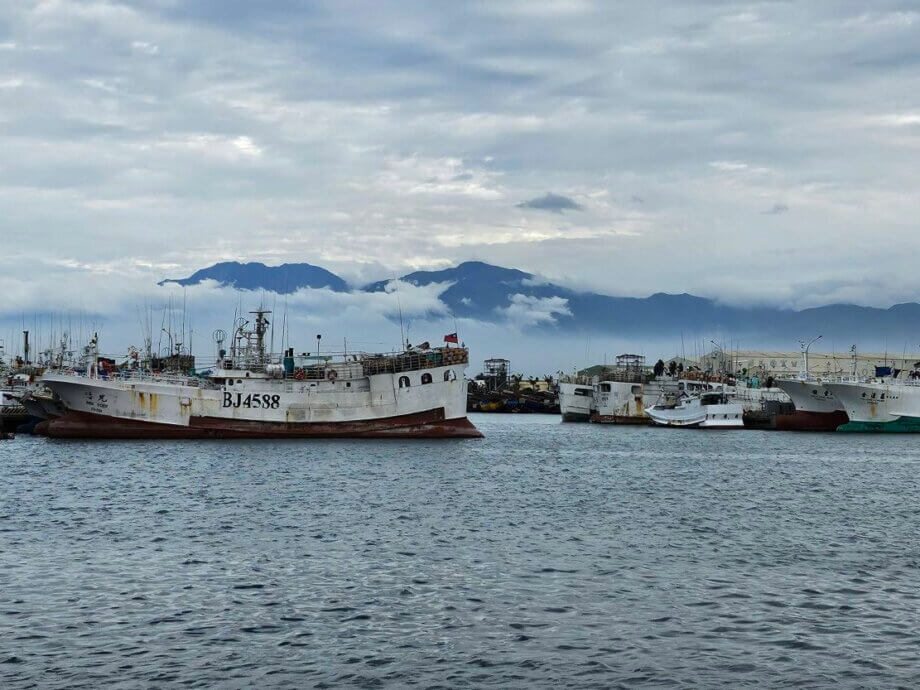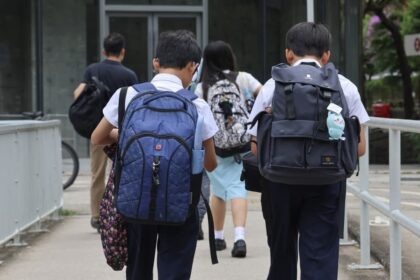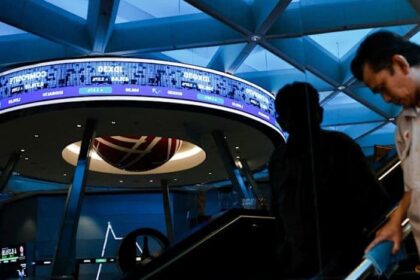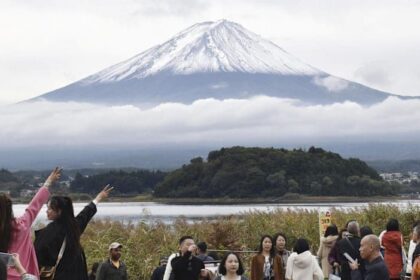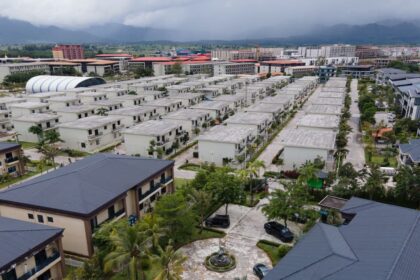The Hidden Cost of Seafood: Abuse and Exploitation in Taiwan’s Fishing Industry
Silwanus Tangkotta, an Indonesian fisherman, remembers the moment a heavy wave slammed a rolling metal door onto his hand while working on a Taiwanese fishing boat in the Pacific. His fingers were crushed, but the captain refused to return to port. For over a month, Tangkotta endured excruciating pain, forced to treat his wounds himself with no access to medical care. His story is not unique. It is emblematic of a much larger crisis facing thousands of migrant workers in Taiwan’s fishing industry—one of the world’s largest and most profitable, yet also one of its most criticized for labor abuses.
- The Hidden Cost of Seafood: Abuse and Exploitation in Taiwan’s Fishing Industry
- How Widespread Is the Abuse?
- Why Are Migrant Workers So Vulnerable?
- Reforms and Government Response: Are They Enough?
- Global Supply Chains: Are Consumers Complicit?
- Sending Countries Take Action: Indonesia’s Push for Protection
- Broader Implications: Human Rights, Soft Power, and Taiwan’s Global Image
- In Summary
Taiwan, often celebrated for its liberal values and human rights record, operates the world’s second-largest distant-water fishing fleet. Its seafood is exported globally, ending up on dinner tables and supermarket shelves from the United States to Europe. But behind the bounty lies a troubling reality: widespread reports of forced labor, wage theft, violence, and dangerous working conditions for the migrant workers who power the industry.
How Widespread Is the Abuse?
International organizations, including the U.S. Department of Labor, have repeatedly flagged Taiwan’s fishing industry for forced labor. In 2023, the U.S. government again listed fish from Taiwanese vessels as products of forced labor, citing evidence of deceptive recruitment, withheld wages, physical violence, and extreme working hours. According to Greenpeace USA, this is the third time Taiwan’s distant-water fleet has appeared on the list since 2020, reflecting persistent and systemic issues.
Indicators of forced labor documented by NGOs and government reports include:
- Hunger and dehydration
- Degrading and unhygienic living conditions
- Physical and verbal abuse
- Restrictions on leaving vessels
- Withheld wages and illegal deductions
- Deceptive recruitment and high fees leading to debt bondage
- Confiscation of identity documents
- Extremely long working hours, sometimes up to 20 hours a day
Many of these abuses are enabled by the isolation of workers at sea, lack of oversight, and loopholes in Taiwan’s labor laws. Most migrant fishermen come from Indonesia, the Philippines, and Vietnam, and are often excluded from the protections of Taiwan’s Labor Standards Act. This leaves them without guaranteed overtime pay, health insurance, or effective channels to report abuse.
Isolation at Sea: The Role of Communication Barriers
One of the most insidious aspects of exploitation is the deliberate isolation of migrant fishers. Many vessels do not provide internet access, making it nearly impossible for workers to contact their families or seek help. The “Wi-Fi Now for Fishers’ Rights” campaign has criticized the Taiwan Tuna Association for opposing Wi-Fi on vessels, arguing that isolation increases productivity. Achmad Mudzakir, Chairman of the Indonesian Seafarers Gathering Forum, emphasized the fundamental right of fishers to communicate:
“Fishers should have the right to access their pay, voice concerns, and maintain contact with their families.”
Jennifer Rosenbaum, Executive Director of Global Labor Justice–International Labor Rights Forum, added that mandatory secure Wi-Fi would allow fishers to report abuses in real time and maintain their well-being. Without communication, workers are left vulnerable to exploitation, unable to alert authorities or unions to their plight.
Why Are Migrant Workers So Vulnerable?
The vulnerability of migrant fishers in Taiwan is rooted in a complex web of economic, legal, and social factors. Many workers incur significant debts to recruitment agencies in their home countries, often paying thousands of dollars in fees for the promise of a job. Once on board, their passports may be confiscated, and their wages withheld or deducted for arbitrary reasons. The threat of dismissal or deportation deters many from reporting abuse, as losing their job could mean financial ruin for themselves and their families.
According to the Control Yuan, Taiwan’s top government watchdog, between 2017 and 2019, over 1,500 complaints were filed by migrant fishermen, with some agencies receiving over 100 complaints each. Yet, inspections and enforcement have lagged far behind the scale of the problem. The brokerage system, which ties workers to specific employers and charges high fees, has been widely criticized for enabling debt bondage and exploitation. Despite calls from NGOs and international bodies to abolish the system, the government has so far refused.
Legal Loopholes and Lack of Protections
Only coastal fishermen are covered by Taiwan’s Ministry of Labor, while those on distant-water vessels—who make up the majority—are regulated by the Fisheries Agency and lack residency documentation. This legal distinction leaves most migrant fishers outside the reach of basic labor protections. The Environmental Justice Foundation and other NGOs have called for Taiwan to ratify the International Labour Organization’s Work in Fishing Convention 188 and to apply the Labor Standards Act to all fishers, regardless of where they work.
Allison Lee of the Yilan Migrant Fishers Union criticized the government’s focus on getting off the U.S. forced labor list rather than addressing the root causes of exploitation:
“The government is more concerned with its international image than with the lives and rights of the workers who power its fishing industry.”
Reforms and Government Response: Are They Enough?
In response to mounting international pressure and high-profile abuse cases, Taiwan has pledged more than NT$2 billion (about US$68.5 million) to improve conditions for migrant fishers. Recent reforms include raising the minimum monthly salary for foreign crew from $450 to $550, limiting time at sea to a maximum of 10 months, and promising to increase inspection rates of longline fishing boats from less than 10 percent to 100 percent. The government has also introduced measures such as installing CCTV cameras on vessels and prosecuting abusive captains and officers.
Premier Su Tseng-chang stated:
“It is the right thing to properly look after these foreign crew members who come from disadvantaged backgrounds and seek a living at sea.”
However, activists and labor unions argue that these reforms are largely superficial and fail to address the underlying issues. Wage theft, overwork, and lack of legal protections remain widespread. The prosecution of abusive captains, such as in the notorious Da Wang case—where an Indonesian crew member died after being beaten and stored in a freezer—are rare exceptions rather than the rule.
International and NGO Pressure
NGOs such as the Human Rights for Migrant Fishers coalition have called for a comprehensive overhaul of the system. Their recommendations include:
- Ratifying international labor conventions
- Applying labor laws to all fishers
- Ensuring proper labor inspections and training for authorities
- Creating accessible complaint channels for fishers at sea
- Developing a clear action plan with regular review by NGOs
- Reforming recruitment regulations to prevent exploitation
They also advocate for the Ministry of Labor, rather than the Fisheries Agency, to oversee all labor affairs for fishers, and for legal amendments to define all Taiwanese distant-water fishing vessels as extensions of Taiwanese territory—ensuring that national laws apply regardless of where the vessel operates.
Global Supply Chains: Are Consumers Complicit?
Taiwan’s fishing industry is deeply integrated into global supply chains. The United States imports about 80 percent of its seafood, and Taiwan is a major supplier. Major brands like Bumble Bee Foods, owned by Taiwanese tuna trader FCF, have been linked to fish caught with forced labor. Lawsuits have been filed against these companies, alleging that they benefit from abusive practices in their supply chains.
Greenpeace USA’s Sari Heidenreich warned:
“American consumers are at risk of consuming seafood tainted by modern slavery. Companies and retailers must scrutinize their supply chains and take responsibility for the human rights of workers.”
A recent Greenpeace scorecard found that only one out of 16 major U.S. retailers received a passing grade for human rights in their tuna supply chains. Many companies rely on third-party certifications, which activists argue are insufficient to guarantee ethical practices.
The Global Context: A Widespread Problem
The abuse of migrant workers is not unique to Taiwan. The United Nations estimates that one in five fish is caught through illegal, unreported, and unregulated (IUU) fishing, with about 128,000 workers trapped in forced labor on remote fishing vessels worldwide. Child and forced labor have been documented in the production of fish and seafood in at least 20 countries. The U.S. Department of Labor and international organizations are pushing for better enforcement, guidance for marine authorities, and the use of trade agreements and sanctions to hold countries and companies accountable.
Sending Countries Take Action: Indonesia’s Push for Protection
Indonesia, the largest supplier of labor to the global fishing fleet, is working to protect its citizens working on foreign vessels, including those in Taiwan. The Indonesian government is pursuing bilateral agreements to improve recruitment, placement, and training, and has issued new decrees to align with international labor standards. These efforts aim to ensure both the safety of Indonesian workers and the interests of foreign vessel owners.
However, the effectiveness of these agreements depends on the willingness of host countries like Taiwan to enforce labor standards and protect migrant workers’ rights. Without meaningful reforms and international cooperation, abuses are likely to persist.
Broader Implications: Human Rights, Soft Power, and Taiwan’s Global Image
Taiwan’s reliance on migrant labor is not limited to the fishing industry. With an aging population and a shrinking workforce, the island depends on over 700,000 migrant workers, mostly from Southeast Asia, for sectors ranging from elder care to manufacturing. Yet, many of these workers face similar challenges: high brokerage fees, debt, lack of legal protections, and vulnerability to abuse.
Human rights abuses in the fishing industry threaten to undermine Taiwan’s international image as a democracy and a champion of liberal values. They also risk straining diplomatic relations with Southeast Asian countries, whose citizens make up the bulk of Taiwan’s migrant workforce. As Taiwan seeks closer ties with the region through its New Southbound Policy, the treatment of migrant workers has become a litmus test for its commitment to human rights.
Experts argue that strengthening protections and offering paths to permanent settlement would help address demographic challenges, improve Taiwan’s international standing, and protect the vital workers who keep its economy afloat.
In Summary
- Taiwan’s fishing industry, the world’s second-largest distant-water fleet, relies heavily on migrant workers who face widespread abuse, forced labor, and dangerous conditions.
- International organizations and NGOs have documented systemic exploitation, including wage theft, violence, debt bondage, and lack of legal protections.
- Isolation at sea, lack of communication, and legal loopholes make it difficult for workers to report abuse or seek help.
- Recent government reforms have raised wages and promised better oversight, but activists argue these measures are insufficient and fail to address root causes.
- Taiwan’s seafood exports are deeply integrated into global supply chains, raising concerns that consumers worldwide may unknowingly buy products linked to forced labor.
- Sending countries like Indonesia are pushing for better protections for their citizens, but meaningful change requires cooperation and enforcement by host countries.
- Human rights abuses in the fishing industry threaten Taiwan’s international image and its relationships with key partners in Southeast Asia.


